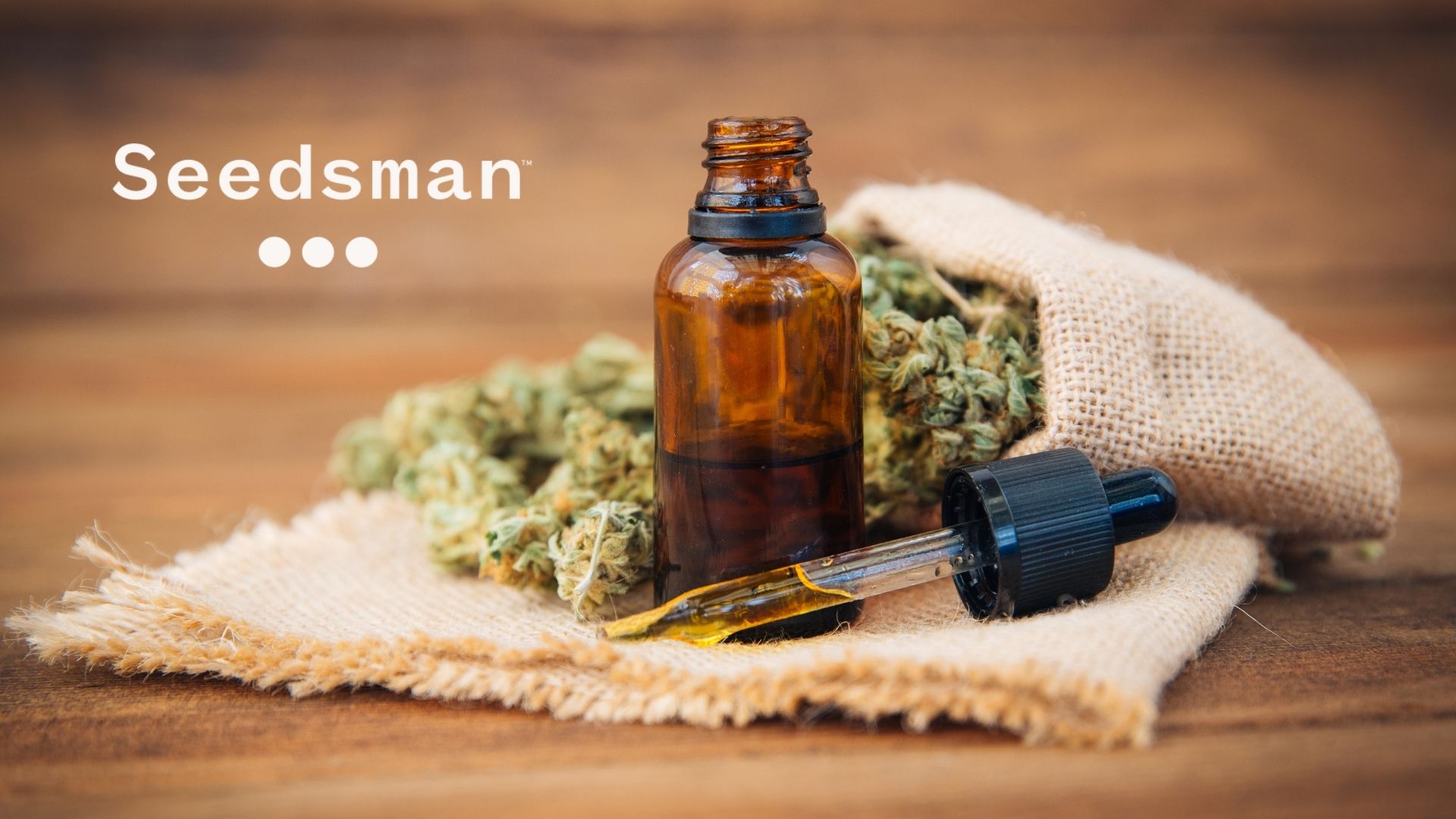
Why UK Children Are Still Denied Medicinal Cannabis
In the autumn of 2018, the doors to legal, medical cannabis use in the UK swung open, with the rescheduling of ‘cannabis-based medicinal products’ (CBMPs) from Schedule 1 to Schedule 2 under the Misuse of Drugs Regulations.
After nearly fifty years of leaving sick patients dependent on an illicit cannabis market, this felt like a landmark decision that would finally enable clinicians to prescribe CBMPs and expand much-needed cannabis research.
The change in law came about in response to the medical needs of two children with severe drug-resistant epilepsy, Alfie Dingley and Billy Caldwell, and the tireless campaigning of their mothers to ensure their access to cannabis medicines.
Travelling to countries with more liberal cannabis laws, Hannah Deacon and Charlotte Caldwell found neurologists willing to prescribe medical cannabis and witnessed a profound transformation in their sons’ quality of life, with seizures reducing from up to 100 a day to going multiple weeks seizure-free. Wanting to return home and continue with their prescriptions, they launched a high profile media campaign, bringing national attention to their children’s plight. Denied their medicine back in the UK, both children’s dramatic deterioration in health made headline news, their dependence on this medicine clear for everyone to see.
The Home Secretary was forced to respond compassionately, and cannabis-based medicinal products were rescheduled there and then. This response generated high expectations amongst the patient community. Families and carers of children with severe epilepsy felt sure that they would finally get cannabis prescriptions on the National Health Services (NHS). If Alfie, and later Billy, had got one, surely they could get one too. But sadly, this has not been the case.
What Went Wrong?
We sat down with Hannah Deacon to get a closer look at what’s really going on in the UK for kids with severe epilepsy and why the law continues to deny so many children access to CBMPs on the NHS. Following Alfie’s prescription, Hannah didn’t put down the activism. Knowing how much cannabis has changed the life of her son and their family (‘like night and day’), with Alfie having over 500 days seizure-free, she has continued to campaign for fair access to cannabis so that families can have the chance that she and her family had.
From 2018 to Now
Since the change in the law over three years ago, only three whole-plant cannabis-based medicines have been prescribed to children on the NHS. Around 200 NHS prescriptions for Epidyolex, a CBD-only licensed medicine, have been issued. But for many children with intractable epilepsy, CBD is not enough and Epidyolex has only limited efficacy when compared to whole plant extracts. The ‘entourage effect’ of other cannabinoids, including THC, can be necessary to reduce or put an end, to the life-threatening seizures that many of these children are suffering.
Currently, the only way children with this condition can access full-spectrum cannabis medicines in the UK is private unless you can prove an ‘exceptional’ case (like the three granted prescriptions have). GPs aren’t authorised to prescribe it. Only clinicians on the specialist register of the General Medical Council (GMC) with the appropriate expertise. There are just two paediatric neurologists on the register willing to do this, and both have stopped taking on new patients. For families with recent diagnoses, there is nowhere to go.
For those under the care of these consultants, many have struggled to keep up with the exorbitant costs of their prescriptions – up to £2000 per month. Families have had to go to great lengths to raise these funds – social media campaigns, fundraising events, and even selling their houses. This is on top of full-time caring for their ill children.
The key question is why, when medicinal cannabis has been legalised, and three children have managed to secure NHS prescriptions, more prescriptions have not been written?
Real-World Evidence vs Randomised Controlled Trials
No matter how many children report miraculous results from cannabis, the authorisation of medical products in the UK is dependent on the supposed ‘gold standard of clinical research – randomised controlled trials (RCTs). According to the Medicine and Healthcare Regulations Agency (MHRA) and the NHS, there is a lack of this quality evidence demonstrating the safety and efficacy of whole-plant cannabis extracts. The only cannabis trial for paediatric epilepsy of that quality was GW Pharmaceutical’s research with CBD, which proved safety and efficacy and so is licensed and authorised. Regulatory agencies and politicians assert that cannabis medicines should not be granted some sort of ‘cannabis exceptionalism’ and that they should follow the route to market of every other pharmaceutical medicine.
Many people have suggested that due to the enormous cost of randomised placebo-controlled trials, the time they take, and the urgent need for seizure stopping medicines for these children, we should accept a lower standard of evidence – like patient-reported outcomes and clinical observations. For example, a recent study conducted by Drug Science, which observed 20 children with severe treatment-resistant epilepsy over two years, found that whole-plant cannabis treatment resulted in an 86% reduction in seizure frequency. What’s more, the children were able to reduce their pharmaceutical anti-epileptic drugs from 8 to 1.
But whilst the government and health regulatory bodies wait for placebo-controlled trials, hundreds of children and their parents are suffering immeasurably. There are 37000 children with refractory epilepsy in the UK, many of whom could benefit from full-spectrum cannabis extracts. The government rescheduled these extracts but won’t invest the time and resources to license them. Doctors are reluctant to prescribe unlicensed medicines for good reason. If anything goes wrong they have to accept responsibility for the adverse outcome, unless it can be proven that the medication was a faulty batch.
Why Isn’t There More Cannabis Research for Paediatric Epilepsy?
Part of the problem is that the rescheduling in the UK created a kind of stalemate. Theoretically, patients can access the medicines they want to, as long as they are prepared to pay for them. The rescheduling solved the problem of high profile patients needing their cannabis medicines in the short term – although, how they justify the fact that 3 kids have their prescription on the NHS, whilst all the others have to pay, is still unclear. In light of this, neither pharmaceutical companies nor the government has much incentive to pay the cost of RCTs (tens of millions of pounds) for something that they would be hard pushed to patent anyway due to being unable to claim novel invention.
There are many countries around the world with more lenient, less burdensome medical cannabis laws that don’t require placebo-controlled trials to authorise cannabis prescriptions. British patients can access cannabis medicines from them which means that the urgent need is no longer there, neither patentability, making it harder for businesses to find investment for such research.
Because GW Pharmaceuticals exists, the government has stalled widening access, thinking that medical cannabis is taken care of. But as Hannah Deacon says, ‘We need to create a fair market, and at the moment, we have a cartel. We need multiple companies and good competition. Not just one company making only two products.’
What Can be Done?
With more observational data and more education on cannabis medicines for doctors, clinicians might be more willing to prescribe, even with potential litigious consequences. To support this, Drug Science’s Project 21, is enrolling thousands of cannabis patients, providing them with medical cannabis at a reduced rate, and monitoring the effects.
Ideally, the government and medical regulatory agencies will take note and do what other governments have done and give up shoehorning cannabis into pharmaceutical regulations. It is a botanical with a considerable history of medicinal use spanning thousands of years. Cannabis was legal to prescribe in the UK until 1971 and was used by doctors for various ailments. It shouldn’t need to undergo the same process as a novel pharmaceutical drug. It doesn’t happen in many other jurisdictions, such as Canada, Uruguay, Holland or Germany.
If cannabis were regulated by a centralised Medicinal Cannabis Agency, with cannabinoid experts employed, rather than the patchwork of disparate groups at the MHRA, NHS and NICE currently, and licenses were given to national businesses to both grow and produce products from cannabis flowers under specific health and safety regulations, there would be a lot more access, a lot quicker. But as Hannah Deacon told us, “for this to happen, the British government needs to take medicinal cannabis more seriously.”
The political will needs to be there to roll out more comprehensive access and recognise both the considerable patient needs and the economic opportunities a thriving national cannabis industry could bring. The latter is sadly more likely to spur action with the current government than the former.
In the meantime, the government could create a fund to pay for the private prescriptions of the families whose children’s lives are transforming due to cannabis extracts that contain CBD, THC and a full range of minor cannabinoids and terpenes.
These conversations form part of our #MedMarch focus.
Cultivation information, and media is given for those of our clients who live in countries where cannabis cultivation is decriminalised or legal, or to those that operate within a licensed model. We encourage all readers to be aware of their local laws and to ensure they do not break them.
Source link












